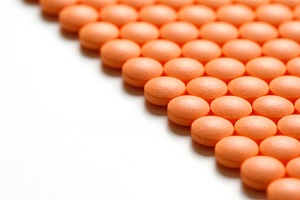Colace

Brand name(s): Colace, Aqualax, Colace, Conate, Correctol, D-S Caps, D.O.S., Dialose, Diocto, Dioctyl, Dioctyn, Doc-Q-Lace, Docu Soft, Docu, Doculax, DOK, DOS, Doss-Relief, DSS, Dulcolax Stool Softener, Enemeez, Fam-Colsof, Genasoft, Gentle, Kao-Tin, Kaopectate, Laxa Basic, Modane Soft, Phillips Liqui-Gels, Regulax SS, Silace, Stool Softener, Sulfolax, Sur-Q-Lax, Surfak, Therevac SB, Uni-Ease
Generic name: docusate sodium, docusate potassium, docusate calcium (all are salts)
Preparations: tablet, capsule, soft gel, liquid, enema
Uses in IBS:
Docusate salt is a stool softener used to treat or prevent constipation or to prevent fecal impaction. It is available over-the-counter in many brand names. Docusate is an anionic surfactant. That is, it lowers the surface tension at the oil-water interface of feces, allowing water and liquids to penetrate the stool. This helps to hydrate and soften the stool, facilitating natural defecation. Docusate works after 1-3 days of therapy. It is used to relieve constipation and is especially useful for constipation-predominant IBS.
Contraindications
It is not recommended to use docusate with mineral oil. Docusate increases the systemic absorption of mineral oil, which can cause inflammation of the intestinal mucosa, liver, spleen, and lymph nodes.
Docusate should not be combined with laxatives used to evacuate the bowel prior to radiologic exams and surgery.
People with appendicitis, GI obstruction, or fecal incontinence should not take docusate.
Adverse Reactions
Docusate rarely causes adverse effects. Occasionally, mild GI cramping or abdominal pain can occur, as well as a sore throat and itching. Excessive doses can produce diarrhea.
